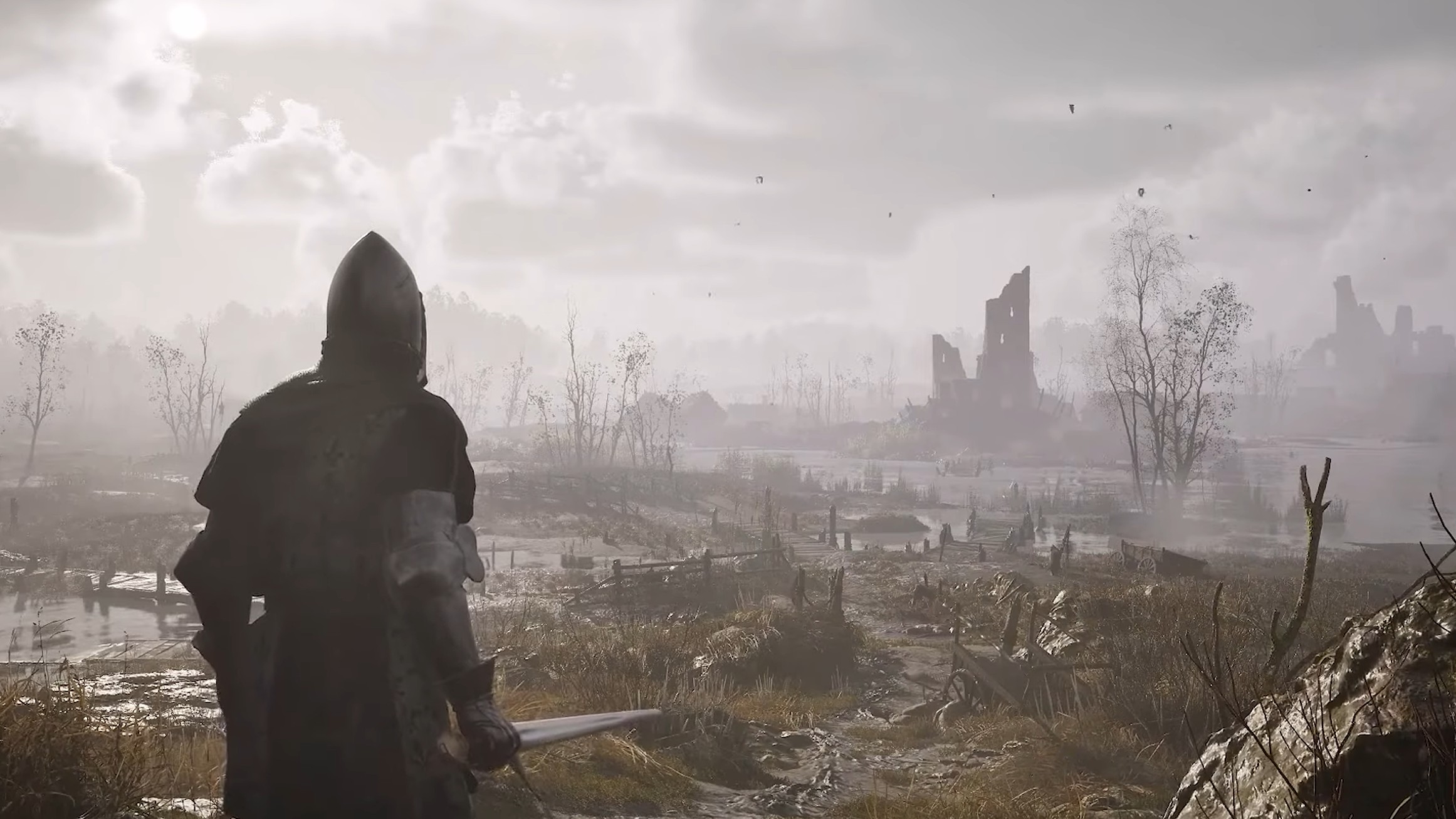
The Penguin Spoiler-Free Review
The Penguin premieres on HBO and Max Thursday, September 19, before moving to Sundays at 9 p.m. ET. IGN will post weekly reviews of the series following each new episode.
After Oswald “Oz” Cobb (Colin Farrell) spends four episodes cutting a path of destruction across Gotham City, somebody finally says it: “You got too many plates spinning.” As The Batman (the 2022 movie) established, The Penguin (the character) is no stool pigeon. But The Penguin (the HBO spin-off) is not opposed to telling on itself. In the process of squeezing some premium cable mayhem out of material originally conceived for The Batman – Part II, showrunner Lauren LeFranc and team have taken on more than they can handle. It was ambitious to build a bridge to a superhero event film within a mob mini-epic airing in the hallowed timeslot once occupied by one of the latter genre’s undisputed masterpieces, The Sopranos. All the while, they’re also filling in the background of a villain mostly made of prosthetics and ushering a more recent addition to Batman lore into the big time.
Oh yeah, and they’re trying to do it all in only eight episodes; to contrast that with The Sopranos, the other members of the DiMeo crime family were only just starting to catch wind of Tony’s forbidden therapy regimen by episode eight. In TV terms, this isn’t a lot of time – and The Penguin is, as a result, a mess. Sometimes an entertaining mess, but more often one that shoehorns its character and relationship arcs into an oh-so-2024 running length. The franticness that ensues suits the impulsive, talk-his-way-out-of-any-bind protagonist, while also fueling a gnarliness and bloodlust that’s never as sensational as the big budget and prestige-TV trappings make them out to be.
Oz is, frankly, an odd choice to build an entire series around. He works as a supporting player in The Batman, with Farrell’s approximation of a New Joizy dialect and the character’s reimagining as a two-bit hood adding some notes of Francis Ford Coppola and Martin Scoresese to Gotham’s gangland stew. Farrell’s disappearance into Robert De Niro facial expressions and James Gandolfini vocalizations continues here, though it starts to feel less like homage and more like pastiche after a few episodes.
What keeps Oz from feeling like the sum of TV and movie gangsters who’ve come before him is Farrell’s gift of gab and a wounded soulfulness that no amount of silicone and hairpieces can hide. But the most impressive creative decision involved with Oz Cobb (not Cobblepott, for that would be too whimsical for a franchise that revolves around, *checks notes* a billionaire orphan who strikes fear in the heart of criminals – a cowardly and superstitious lot – by dressing like a bat) has nothing to do with the visual presentation. It’s the choice to make him an ambitious screw-up, a guy who thoughtlessly knocks over a domino in the premiere and spends the next seven episodes trying to claim ownership of the pieces falling around him.
But that’s making The Penguin out to be more intricately plotted than it actually is. Oz’s rise to power is positioned as an artfully planned heist, but it plays out like a series of reckless smash-and-grabs. It starts out promisingly enough: His cross-Gotham attempts to cover up a lethal mistake make for an absorbing premiere, with the feel of an antic comic-book one-off. It provides Oz a crucial sidekick in the original character of Victor Aguilar, played by Rhenzy Feliz with a babyfaced, what-did-I-get-myself-into dismay that comes in handy throughout the series. But it also sets a pace that’s fatal to the remaining episodes, which plow through any obstacle and undermine all potential conflicts with a blunt-force convenience that kills all suspense in the race to fill the power vacuum left by the late crime boss Carmine Falcone.
As a devotee of Amy Sherman-Palladino’s fast-talking TV dramedies, I was tickled to find Falcone’s heirs apparent played by guys once romanced by The Marvelous Mrs. Maisel (Michael Zegen) and one of the Gilmore Girls (Scott Cohen). And, as a fan of The Sopranos who spent a lot of The Penguin overanalyzing Oz’s taste in leather jackets and gold chain jewelry, I was pleased to get an actual (if somewhat tangential) connection to that series in Cristin Milioti, following up her brief stint as Catherine Sacrimoni with her portrayal of Falcone daughter Sofia. When Milioti uncorks her portrayal of the crime family’s formerly institutionalized black sheep, it’s like nothing else on The Penguin – really, her eye-popping menace is closer to something out of Gotham, the Adam West Batman series, or any other Caped Crusader-adjacent production that doesn’t take itself so damn seriously. Her unpredictability doesn’t help The Penguin’s all-gas, no-brakes storytelling, but her loud wardrobe and Milioti’s brash acting choices – her table manners would send a chill down the spine of the fish-guzzling Penguin Danny DeVito plays in Batman Returns – add some much needed color in a washed-out Gotham still recovering from the havoc wreaked by The Riddler and his followers.
The Penguin is a mess – but sometimes an entertaining mess.
More than any of its predecessors, The Batman crafted a setting that felt like a living, breathing city with residents and institutions that existed and functioned independently of any masked vigilantes or their eccentric foes. While The Penguin is an extension of that world-building, it also makes Gotham feel smaller by focusing so tightly on a family that, we now know, is explicitly linked to Matt Reeves’ interpretations of Bruce Wayne and Selina Kyle. Good for a depiction of the all-encompassing, unavoidable corruption that defines this onscreen version of Gotham, but kind of limiting to the scope of the types of stories that can be told within The Batman Epic Crime Saga. (It’s like how Star Wars has a whole galaxy at its disposal, yet we keep getting movies and TV shows that inevitably tie back to the Skywalkers.) Setting The Penguin in the wake of Edward Nashton’s coup de grâce helps explain why Bruce isn’t getting involved – he’s clearly got other things to attend to – but as bodies start piling up and the streets flood with a new drug called Bliss, it starts to strain credulity that any of this is flying under his radar (or sonar?).
Or maybe he can’t be made to care. Sofia aside, the Falcones aren’t all that compelling, and their infighting and tug-of-war with rival Sal Maroni (Clancy Brown) suffers as a result. The Penguin props up this middling drama with pieces of so many genuine mob classics: some shadows and lighting borrowed from The Godfather here, the Goodfellas-esque portrait of the gangsters who protected/terrorized Oz’s old neighborhood there. But the fact that the subject of Oz’s fondest reminiscing is played by Louis Cancelmi (The Irishman’s Sally Bugs) can only go so far.
Characters and relationships are tossed into the rubble too quickly to make a lasting impression; Oz pivots between allies and adversaries with such fickleness and frequency that we don’t get a chance (or even good reason) to appreciate how he’s playing them off one another in a tussle to control the Bliss trade. A rote “crime doesn’t pay” message is written all over each aggressively tinted frame of The Penguin, but it’s only truly felt through Victor’s arc – and even then, we only get one mid-series episode to see all he’s sacrificing to be Oz’s right-hand man. When the following episode gives way to an extended flashback to Sofia’s harrowing stay in Arkham State Hospital, I found myself wondering: Is The Penguin faltering because it’s doing too much across such a short span… or is there actually not enough substance to Oz’s Scarface-like ascent (and Sofia’s attempt to stop it) to fill out eight episodes? The padding that emerges in later episodes suggests the latter. Oz has his own tragic backstory interlude on tap, a rewind alongside his ailing mother, Francis (Deirdre O’Connell), that’s rife with the sort of 11th-hour reveals that are intended to shock but wind up infuriating instead. (Why keep this sort of information from your audience when it’s probably constantly on your characters’ minds and could’ve added much-needed dimension before now?)
The Penguin wants us to see its leads as underdogs – Oz loves describing them as such – but it takes constant shortcuts toward earning our sympathies. They’re broken and discarded people united by misfortune, which the show literalizes in disabilities and medical conditions clumsily grafted onto their characterization: Oz’s clubfoot, Sofia’s mental illness, Vic’s stutter, Francis’ Lewy body dementia. None of this provides deeper insights into psychology or personality as much as it gives the actors more on-camera business to attend to – the wobbly gait that contributes to Oz’s hated nickname, for instance – and they sometimes feel like attributes called upon only when the story demands it. At worst, they’re something to gawk at, as in one ghastly close-up of Oz’s gnarled foot.
To the bitter end, Oswald Cobb’s ambitions get the better of him.
Attempts to do the most within The Penguin’s limited real estate occasionally hit on something interesting: Sofia’s targeting of the people closest to Oz leads her to the doorstep of – and a wonderfully tense meeting of the minds with – his girlfriend Eve, played by Carmen Ejogo. But it also leads to some embarrassing detours, like the scenes from Sofia’s stay in Arkham – the sort of heightened, grimy, through-the-looking-glass psychodrama that gives the term “cartoonish” a bad name. The problems plaguing the series are thrown into stark relief by the finale, which stretches the trip into Oz’s past into a second episode while attempting multiple gut punches that fail to land because the people involved haven’t been given the screentime to matter to each other or to us. Without spoiling anything, I found the finale extremely disappointing and misguided. The acts of mimicry reach their lowest point here, with a betrayal that recalls but can’t quite conjure the quiet devastation of character deaths from The Sopranos and Breaking Bad. It’s jaw-dropping for all the wrong reasons. To the bitter end, Oswald Cobb’s ambitions get the better of him. Perhaps he’ll fare better when someone else’s spinning plates are at the center of the picture.








